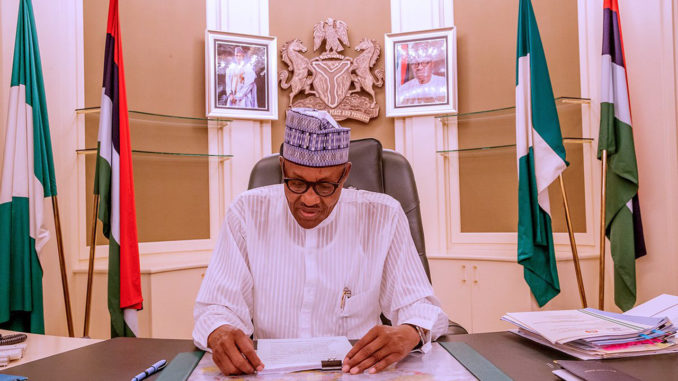
GIVEN his long-held inflexible views on the vexed national question of restructuring, President Muhammadu Buhari must have left many Nigerians stunned by his recent call for a return to “true federalism” as the most fitting political structure for the country today. Addressing governors elected on the platform of the ruling All Progressives Congress, he said, “Your Excellency, it will be belabouring the point to say that true federalism is necessary at this juncture of our political and democratic evolution.”
The call could not have come at a better time. With the country currently at a crossroads, it is bound to produce a calming effect. Needless to say, the issue of Nigeria’s distorted federalism has been the basis of impassioned and sometimes rancorous debate among diverse political groups across the country, championed especially by politicians and intellectuals from the South and the North-Central zone. So, for the sceptics who may still be harbouring disbelief or those still bemused by this dramatic switch, the President has so far not issued a rebuttal, meaning that, on this score, Nigerians can take him up on his word.
Until now, there had been no love lost between the President and the advocates of restructuring, a loose term in Nigeria preferred by those who advocate a return to what is now referred to as “true federalism,” as against the travesty currently in practice. Yet, despite his disgust for the term, it formed a part of his party’s manifesto on the basis of which he swept into office in 2015. For that reason, his party, the APC, set up a committee, headed by the Governor of Kaduna State, Nasir el-Rufai, to explore the possibilities of restructuring the country; the committee came up with useful recommendations on power devolution, fiscal federalism, among other critical issues.
As a result of this aversion to restructuring or federalism, Buhari also kept mum on the el-Rufai committee report. Strangely, it has been difficult to understand why the President should harbour such revulsion against federalism, a system of government that held sway in the country and enjoyed unwavering support among the old regions, including his own Northern Region, until the military adventurers foisted a unitary system on Nigeria after the first coup d’état of 1966.
In a New Year message, the President dampened the mood of many Nigerians last year when he perfunctorily dismissed the growing clamour for restructuring, saying, “When all the aggregates of nationwide opinions are considered, my firm view is that our problems are more to do with process than structure.” Not done yet, the President, during his trip to France in November, dropped another bombshell, labelling agitators for restructuring as engaging in “lazy talk.” He then posed the questions: “Do they want us to have something like the three regions we used to have? And now we have 36 states and the FCT. What form do they want? Let them define it and then we see how we can peacefully do it in the interest of Nigerians.”
But it is obvious that this was a mere red herring to take attention away from the main issue. Federalism has nothing to do with regionalism or the number of states in a country. The United States of America, for instance, boasts 50 states and it has not posed a problem to its practice of federalism. Brazil has 26 and India 29. Just like in the US, the states in Nigeria are the federating units. What is important is devolving more powers to those units, allowing them to control their resources and to pay the requisite royalties to the Federal Government. Any state that is not viable can merge with an adjoining and more prosperous one.
Even when the elder statesman and former governor of Osun State, Bisi Akande, made his famous call for a return to the Republican Constitution of 1963, he was not referring to the regions; he was actually concerned about the devolution of powers to the current federating units. Instead of the current charade where states go with begging bowls to Abuja at the end of every month, in the true practice of federalism, it is the states’ resources that sustain the Federal Government.
That way, every state will be able to compete and grow at its own pace. States will become centres of economic development, provide their own security, make and enforce their own laws. Again, this does not in any way preclude the Federal Government from keeping its own police. The interests of the minority ethnic nationalities will also be protected.
Whatever might have been the position of the President in the past, Nigerians have to take advantage of his current volte face to press for the practice of federalism the way it should be. Federalism remains the only way of running a vast entity like Nigeria with over 400 ethnic nationalities. With banditry, marauding Fulani herdsmen and Boko Haram tugging at the very heart of the nation, Nigerians have a new opportunity to save their country based on Buhari’s federalism call.
It is also clear that federalism might not come until the people rise as one to demand it as a right. That is what the Algerians did recently by imposing their will on the ruling class that has been taking them for a ride over the years. It is the same people power that has prevailed in Sudan. In Venezuela, the people have also been engaging in mass action to wrest their country from the hands of the self-serving political class that has brought nothing but woes to them. Until this is done, Nigeria’s progress will remain stagnated because of the injustice inherent in the current system which, by its very nature, stifles development.
END

Be the first to comment